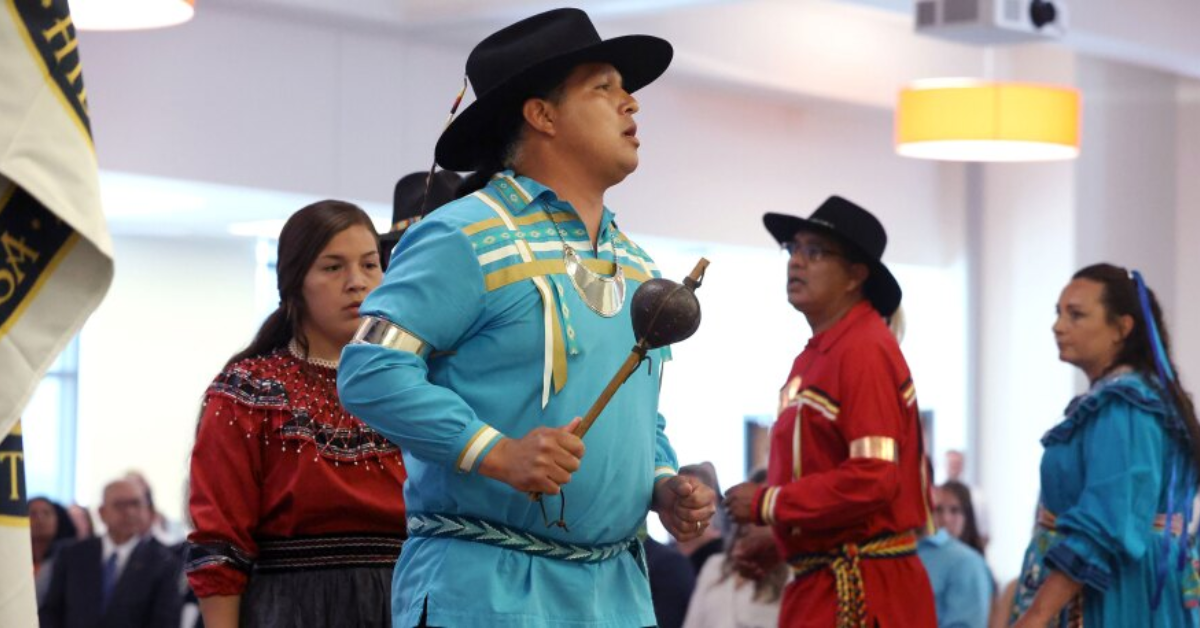More than 4,100 people in Oklahoma still haven’t claimed money from a Native American settlement known as the Cobell Settlement, even though the deadline to claim these funds is approaching. This unclaimed money is part of a much larger settlement from a class-action lawsuit filed by Native American landowners against the U.S. government over mishandling of trust land accounts.
The Cobell Settlement, finalized in 2010, was worth $3.4 billion. It aimed to pay back Native Americans for years of unpaid or poorly managed funds tied to lands the federal government held in trust for them. Out of that $3.4 billion, around $1.5 billion was set aside to be paid directly to individuals across the country, including many in Oklahoma. But even after years of outreach and efforts to locate recipients, thousands of people still haven’t claimed their portion.
According to recent updates from the Office of the Special Trustee for American Indians and the Indian Trust Settlement website, Oklahoma is one of the top five states with the most unclaimed settlement money. These funds are meant for people who had Individual Indian Money (IIM) accounts or who were part of the federally recognized tribes during the trust management period.
In total, over 4,100 individuals from Oklahoma are still listed as having unclaimed settlement awards. Some of the common reasons include outdated contact details, legal name changes, or heirs not knowing they are eligible. Many individuals may not be aware that they’re entitled to money, especially if a parent or grandparent was the original account holder and passed away without passing on the information.
This unclaimed money doesn’t just vanish. The government is holding it until the rightful owners—or their legal heirs—step forward. But there’s concern among officials and Native leaders that many people still don’t know they’re on the list. That’s why they’re asking families to spread the word and check for their names online. The process to claim is not overly complicated, but it does require proper identification and documents to verify tribal affiliation and rightful ownership.

To check if you or a family member are eligible, the official Cobell Settlement website has a searchable list of names. You can access it at https://www.indiantrust.com. Alternatively, you can visit https://www.bia.gov for more information and support through the Bureau of Indian Affairs.
The case that led to this settlement, Cobell v. Salazar, was originally filed in 1996 and challenged the federal government’s mismanagement of Indian trust accounts dating back over a century. For decades, Native Americans received either incorrect or no payments for land leases, oil royalties, or timber sales from land the government managed. The lawsuit led to a historic payout and marked one of the largest class-action settlements against the federal government.
In addition to the $1.5 billion for individual payments, another $1.9 billion was allocated to purchasing fractional land interests from willing sellers to consolidate tribal land. A portion of the money also went to fund a scholarship program for Native American students, ensuring long-term educational support as part of the settlement’s legacy.
While many eligible people already received payments in previous years, the latest concern is with unclaimed funds that remain in limbo. This isn’t just about money—it’s about recognition, justice, and ensuring the legacy of those affected by years of mismanagement is properly honored.
The Department of the Interior continues to encourage families and tribes to help locate missing individuals or their rightful heirs. Even if someone believes they may not be eligible, they are encouraged to check the list. Sometimes, the rightful recipient may not be the person themselves but someone in their family who has passed away, and heirs could legally claim the money.
With no exact expiration date released yet, the unclaimed funds remain accessible—but officials warn that action should be taken soon. If you’re from Oklahoma or have Native American heritage, it’s worth checking if you or someone in your family is on the list. A few minutes could mean reclaiming a part of your rightful heritage and receiving compensation that has been long overdue.








